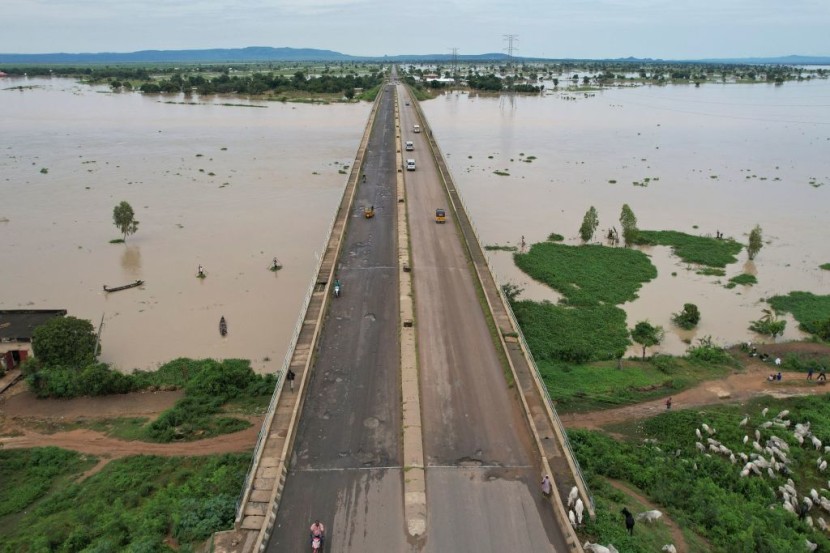
Nigeria's humanitarian affairs ministry said more than 600 people have died in the West African country's worst flooding in a decade.
After an unusually wet rainy season, Nigeria floods have extended across the southern regions of the country, affecting over 2 million people, as reported by the ministry.
The ministry added that over 200,000 homes had complete or partial damage, as reported by CNN.
Nigeria's National Emergency Management Agency (NEMA) warned earlier this month of catastrophic flooding along the Niger and Benue rivers. Three of Nigeria's overloaded reservoirs were anticipated to overflow.
According to NEMA, the flooding was exacerbated by the discharge of extra water from a dam in nearby Cameroon.
Many parts of Nigeria are prone to yearly flooding, but some areas have seen worse than in the major flood in 2012, a Red Cross official in Kogi informed CNN last week.
Local Government Urged To Prepare
On Sunday, Sadiya Umar Farouq, Nigeria's minister of humanitarian affairs, issued a warning that additional flooding was likely and urged local governments to begin preparations.
The Ministry of Humanitarian Affairs issued a tweet on Sunday urging state and local governments to evacuate residents of flood plains to higher ground, distribute relief supplies like tents and food, and stock up on water and medicine in case of a spread of water-borne illnesses.
Farouq urged coastal state governments in the south to evacuate residents of low-lying areas near waterways and other potential flood hazards.
She claimed that some states were warned about the flooding but failed to make enough preparations.
Farouq also stressed the importance of communities paying attention to weather forecasts.
As directed by HE President Muhammad Buhari @nemanigeria has commenced the distribution of 12,000 Metric Tonnes of food and non-food items to states devastated by the recent floods.
— Sadiya Umar Farouq CON (@Sadiya_farouq) October 14, 2022
In addition to distributing food and supplies to states, Nigeria has executed a national action plan for all state and local governments.
The country will soon put into effect its National Flood Emergency Preparedness and Response Plan to better coordinate the response to floods, according to NPR.
Relief has gone to every state of the federation,the ministry claimed, adding that many state governments failed to prepare for the Nigeria floods that also contributed to the high Nigeria floods death toll.
The ministry has organized a delegation to meet with governors across the country to discuss ways in which they can improve their states' flood response capabilities.
Nigerian Gas Company Declares Force Majeure
In a related update, per Africa News, Nigeria LNG, a company producing liquefied natural gas, was prompted to declare force majeure due to the massive flooding that has disrupted supply.
All of the firm's upstream gas suppliers had declared force majeure, the company said, so it had no choice but to do the same.
The company's spokesperson Andy Odeh said that high flood water levels in their operational areas caused the gas suppliers to issue the notice, which resulted in a shutdown of gas production and significant disruption of Nigeria LNG's gas supply.
According to Odeh, NLNG is evaluating the scope of the disruption and will attempt to reduce the effects of the force majeure.
Refinitiv data shows that oil theft has severely lowered production in what is normally Africa's largest exporter, leading to a supply tightening. In September, roughly 18 shipments left the country.
The export of fossil fuels accounts for 90 percent of Nigeria's foreign exchange and roughly 50 percent of the nation's budget.
Related Article: Russian SU-34 Fighter Jet Crashes Into Residential Building, Kills 13 Including 3 Children
© 2026 HNGN, All rights reserved. Do not reproduce without permission.








